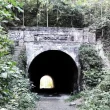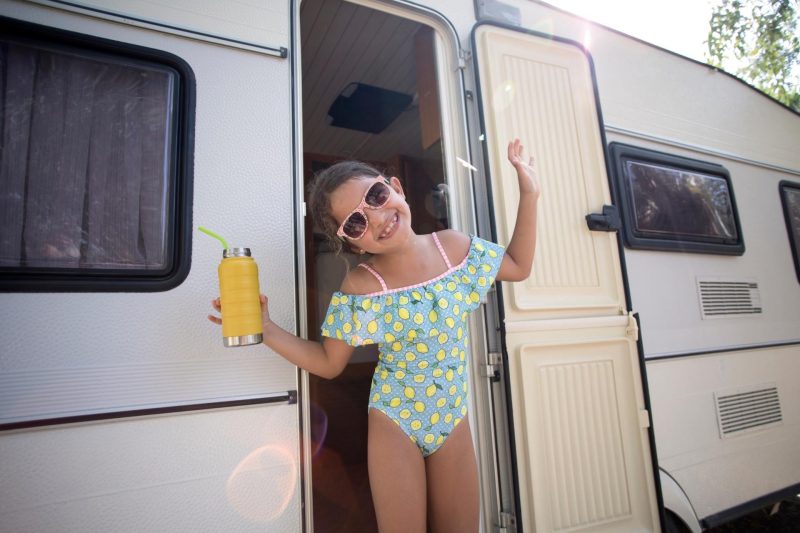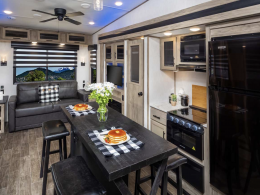For decades people went camping without electronic devices. However, things have changed, and we are very dependent on our devices as a society.
Research indicates that approximately 48% of children and teens spend more than six hours online daily. That’s a whole lot of time spent staring at screens.
Camping can give you and your family a break from technology and electronic devices. If you want to disconnect for a bit, keep reading.

Why You Should Leave Electronic Devices at Home While Camping
It’s sad to think about the massive number of things people miss when staring at their phones. Leaving electronic devices at home while camping allows you to bond with those you love most.
While 85% of parents are worried about the amount of time their kids spend online, 69% of parents say technology interferes with time with their kids. Leaving it behind eliminates the distractions and can allow you to spend distraction-free time with loved ones.
Many campers have become used to the constant notifications on mobile devices and smartwatches. Leaving your electronics at home allows you to enjoy the sunset or animal encounters without buzzes and beeps.
Additionally, you’ll receive little to no cell service or Wi-Fi in many campgrounds. You also won’t have to worry about charging it without electricity handy. Unplugging from electronics can give you time to reset your mental health, connect with others, and find peace in nature.
Tips for Unplugging from Electronics
If you plan to unplug from electronics, here are a few tips. These can help everyone enjoy your time away from devices.
Use Paper Maps
Electronics make navigating and finding your way in an unfamiliar area incredibly easy. While it may be hard to imagine, it wasn’t that long ago that people had to use paper maps to navigate roads and trails. If you plan to disconnect while in an unfamiliar area, ensure you can access paper maps to avoid getting lost.
However, getting lost sometimes makes the best adventures. You never know what you might experience or find. As long as you find your way home safely, you’ll likely have a memory you’ll remember for years.

Bring One Phone for the Family
Having the ability to stay connected or contact help in an emergency is important. However, not every person on your trip needs to bring their phone or device. Instead of every person having a phone, bring one phone for the entire family. This allows you to minimize distractions.
You can even leave the phone turned off or in airplane mode to minimize the notifications and ensure it’s charged if you need to use it. Messages on your devices will still be there when you return or power on your device after your trip.
Leave Work at Work
If you want to leave technology behind, ensure you leave work at work. Let your co-workers know your intentions to be out-of-pocket for some time so they don’t try to reach out to you. You should also ensure you finish important projects so your mind isn’t constantly thinking about work.
Part of leaving technology and devices behind is so that you can free up your mental space too. Constantly thinking and worrying about work isn’t healthy. Enjoy your time off, and know it will be there waiting for you when you return.
What to Do Instead of Using Electronics
We have a few suggestions if you’re having difficulty thinking of things to do while not using electronics. It might surprise you how much fun you can have without using a single electronic device.

Play Card/Board Games
You don’t have to turn to card and board games only when the power goes out during a storm. Many times kids and family members want to play a game, but maybe the family didn’t plan enough time.
Cards require minimal storage space and have a seemingly infinite amount of game possibilities. Camping can be an excellent opportunity to teach kids and others in your group a new game.
HOT TIP
Disconnecting in nature for the weekend? These RV Ggames will keep you (and your family) sane.
Go Fishing
You can enjoy a peaceful day next to the water if you have fishing gear and bait. Even if you don’t catch a single fish, you can get out in nature and away from electronic devices.
Fishing is a great skill to teach children an appreciation for wildlife and patience. Sitting and watching bobbers waiting for a bite from a fish can provide an opportunity to talk and bond with members of your family. In such a fast-paced society, opportunities to slow down don’t come around often.
Cook Over The Campfire
Cooking over the campfire is exciting for everyone. There are a ton of recipes for cooking over the campfire whether you are looking for breakfast, lunch, or dinner. The best part is that you probably already have a campfire going so all you need to buy is campfire safe pots and pans or just get one of these campfire cooking kits.
Read Books
Many people love to read but simply don’t have the time. It might be worth visiting your local library in preparation for an upcoming camping trip.
Putting up a hammock and diving into a good book might be just what you need to relax. You could even have a family book club and sit around the campfire at the end of the day and discuss various books.

Write in a Journal
If you enjoy expressing your creativity through journaling, bring one while camping. Sitting in nature and listening to the wildlife can spark creativity. You might get inspiration for a short story or poem, and having your journal readily available to capture the idea can be helpful.
Journaling is a fantastic way to capture your ideas to reflect on later. Years later, you can pull out your journal and relive experiences and memories while camping.
All you need is a pad of paper and a pencil. Then you can write until you’ve filled every page.
Go for a Hike
Hiking is a popular activity for many campers. Campgrounds often create hiking trails for campers to enjoy. You may even do a bit of research in advance to find hikes that fit your family. Talking to rangers can also help ensure you don’t bite off more than you can chew.
Hiking is a great way to do something difficult as a family. Working together and motivating each other is important. Some trails may require hikers to support each other when crossing creeks or challenging sections.
Connect with Nature, Not Technology
You’re likely not going to look back on your life and wish you had spent more time on technology and less time outside in nature. Technology often distracts us from what matters most in our lives.
Taking the opportunity to disconnect allows us to spend time with people and do the things that matter most. If you find yourself in a funk, we suggest leaving your electronics behind and taking a camping adventure with your loved ones.
What benefits have you seen from disconnecting?
If You Want the Latest Travel News, Join Our Mailing List
Don’t rely on biased RV industry news sources to keep you informed. Stick with Nomadic News. We publish articles and breaking stories that matter to you every weekday.










